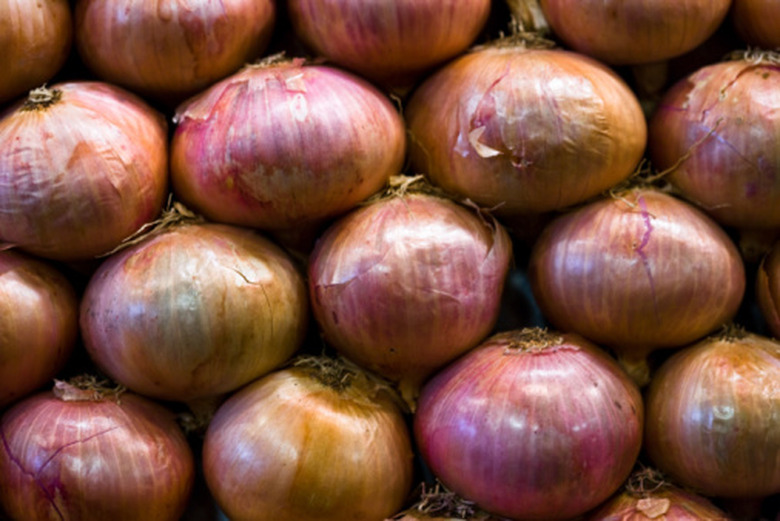The Life Cycle Of An Onion Plant
Familiar garden plants like foxglove and hollyhock grow as biennials, meaning it takes them two years to complete their life cycle. Several vegetables also grow as biennials, but because you pick them before the life cycle is complete, you may never see them go to seed. Among the biennial vegetables are radishes, beets, cabbage and onions.
First Year
In the first year, the onion starts as a seed. The seed is planted and then germinates in a week or two. As the onion grows, it sends up leaves that photosynthesize to produce energy for the plant. Over the course of the spring, summer and fall, the onion takes this energy and stores it to develop the bulb. The bulb is the edible portion of the onion and it sits below ground between the roots and the base of the leaves.
Over the Winter
Onions grown for food are usually harvested when the leaves die back in late fall. However, if left in the ground, the onion stays alive over the winter by using the energy stored in its bulb. During the cold of winter, the onion is in dormancy.
Second Year
When the temperatures warm in the spring of the onion's second year, the onion comes out of dormancy. The warmer weather signals the onion that it's time to flower, so the onion sends up a flower stalk. The flower then blooms during late spring and summer and is pollinated. By the end of fall in the second year, seeds develop to grow future onions.
What Can Go Wrong
An onion exposed to a sudden cold spell or a long period of cooling after warm temperatures becomes confused. Even if it is in its first year, the onion will send up a flower stalk when the weather warms. It does this because the onion has been forced into an early dormancy. When it comes out of this dormancy the signals arrive that it's time to flower. Onions that send up a flower stalk in their first year should be picked and eaten immediately or left to flower and go to seed.
References
- "Sunset Western Garden Book"; Sunset Editors; 1995
- AgriLife Extension Service: Onion Planting
